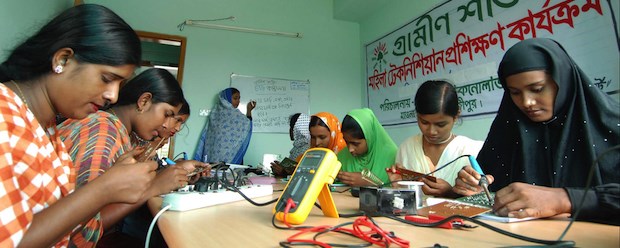
December 2014 - A successful achievement of keeping global warming below 2 °C must be accompanied by development that ensures sustainable economies, healthy environments and sustainable societies. Sustainable development for a world that can be enjoyed by all is the other side of the coin to climate change. The Clean Development Mechanism (CDM) was created precisely to cover these two aspects: firstly, to achieve cost-effective mitigation of greenhouse gases and secondly, to assist developing countries in achieving Sustainable development based on their national development priorities and strategies.
However, complying with the second objective turned out to be problematic. In literature on the CDM’s contribution to Sustainable development the strengths and weaknesses of host countries’ assessment approaches have been identified and analysed over the years. Critique was raised that the current set-up is weak due to the lack of clear and transparent SD criteria by many host countries, cases of registered projects with no SD benefits or negative impacts and the lack of requirements or procedures to monitor, report and verify that intended SD benefits are actually achieved.
Responding to the critique that the CDM is not significantly contributing to Sustainable development, the CDM Executive Board (EB) in 2012 approved the voluntary tool for describing Sustainable development co-benefits of CDM projects or PoAs (SD tool). Yet, judged by its design, the SD tool was perceived to have a number of shortcomings to realise a strong approach for the CDM to contribute to Sustainable development. The CDM High Level Panel on the CDM Policy Dialogue, for example, recommended to strengthen the current system for SD assessment of CDM projects by introducing provisions to report, monitor and verify SD impacts, the latter of which the tool in its current version does not cover.
It is against this background that the German Environment Agency (UBA) has tasked the Wuppertal Institute and UNEP DTU Partnership (formerly UNEP Risoe Center) with conducting the research project „Evaluation and development of recommendations on the CDM EB’s Sustainable development tool including the sustainability requirements of other flexible mechanisms“. This paper reports on the project’s first work package, which consisted of assessing and comparing the SD provisions of selected flexible mechanisms and multilateral standards.
WP 2: Assessing Usefulness - Do Stakeholders Regard the CDM’s SD Tool as Practical?
WP 3: Reforming the CDM SD Tool - Recommendations for improvement
Cookie Settings
Marketing-Cookies werden von Drittanbietern oder Publishern verwendet, um personalisierte Werbung anzuzeigen. Sie tun dies, indem sie Besucher über Websites hinweg verfolgen.
Provider:
Statistik Cookies
Statistik-Cookies dienen der Analyse und helfen uns dabei zu verstehen, wie Besucher mit unserer Website interagieren, indem Informationen anonymisiert gesammelt werden. Auf Basis dieser Informationen können wir unsere Website für Sie weiter verbessern und optimieren.
Provider:
Erforderliche Cookies
Erforderliche Cookies sind für den reibungslosen Betrieb der Website zuständig, indem sie Kernfunktionalitäten ermöglichen, ohne die unsere Website nicht richtig funktioniert. Diese Cookies können nur über Ihre Browser-Einstellungen deaktiviert werden.
Provider: